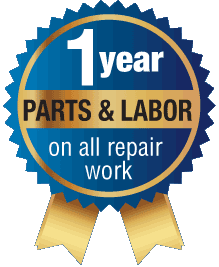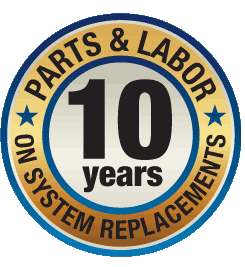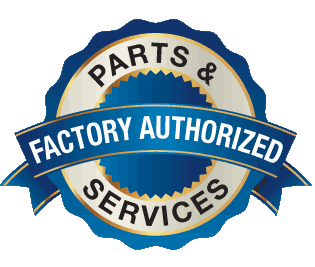
The static pressure in your HVAC system is similar in some ways to the blood pressure in your body. If you have a healthy heart, it will pump blood throughout your body without excessive resistance. High blood pressure alerts you that something is wrong; it can be a warning sign that you’re in danger of experiencing a heart attack, stroke or other cardiovascular problems.
Similarly, there shouldn’t be excessive resistance to airflow out of your HVAC system. High static pressure reveals that there is a problem somewhere with your ductwork or HVAC equipment. It’s an indicator that something is preventing air from flowing through your system as consistently and efficiently as it should.
What is static pressure?
Static pressure can be defined as the amount of resistance your HVAC unit experiences when doing its job of circulating air throughout your environment.
4 critical parts of an air conditioning unit
Having a basic understanding of what parts make up your air conditioner and how those parts work together can help you better identify a problem or determine if your AC is running as efficiently as it should.
How is static pressure measured?
There are different possible ways to measure static pressure. One of the most accurate ways to approach this is to do the following:
- Attach a digital pressure gauge to the air handler.
- Release a burst of air.
- Take a reading from the gauge to measure the amount of static pressure that’s present within the system.
Another option is to use an aneroid manometer gauge. There are several different types of these available, including:
- Bourdon tubes
- Diaphragms
- Capsule elements
Static pressure measurements are usually expressed in inches per water column. This can be written in several ways: inch WC, in WC or inches h20.
What are the effects of static pressure on HVAC systems?
Improper static pressure can adversely affect both the efficiency and longevity of an HVAC system. The effects extend beyond that, frequently resulting in discomfort for the home’s inhabitants and higher-than-necessary electricity bills.
The most noticeable effects end up being that the home remains uncomfortably warm in the summertime and far too chilly in the wintertime, despite the HVAC unit being turned on and running at full blast.
Considering that global energy costs have been soaring, there is a significant financial incentive to fix even minor efficiency problems with your HVAC system.
HVAC glossary: Common AC terms & abbreviations every homeowner should know
As a homeowner, there are certain terms you should be familiar with when it comes to your HVAC unit. If you’re new to homeownership, this glossary will help.
What causes high static pressure, and what can you do about it?
High static pressure is an indicator that something is hindering airflow through your HVAC system. There are multiple issues that can cause blocked airflow.
Some of the most common causes include:
- Closed dampers
- Blocked ducts
- Improperly constructed transitions
- Flex ducts that have become kinked, damaged or otherwise impeded
It’s also possible to have improperly installed accessories or incompatible system accessories that create the problem. For example, pleated filters, energy-efficient cooling coils, UV lights and dehumidifiers have sometimes been known to adversely affect the airflow within the environment where they’ve been installed.
What about low static pressure?
Low static pressure is not a common problem for homeowners, but it does occasionally happen. Typical causes of this issue include:
- Leaky ducts
- Separations in the ductwork
- Inadequate fan speed
- Missing filters
Possible solutions for problems with static pressure
Depending on what’s causing the issue, there are a number of solutions you can try.
Try replacing your filter
When high static pressure is the problem, replacing your filter is the first thing you might want to try. In some cases, the solution is that simple; a dirty filter can restrict airflow and cause static pressure problems. If you haven’t changed the air filter in the last 3 months or so, prioritize the switch to a clean filter and see if it helps.
If you’ve been running a 1” pleated filter in your HVAC system, consider replacing it with a HEPA filter or a media filter that has a low-pressure drop. Standard 1” filters are notoriously inefficient and don’t do the best possible job of maximizing airflow.
Consider upgrading or renovating your system
If poorly designed or poorly installed ductwork is causing the problem, consider renovating it to make improvements.
If you’re unable to reinstall your ductwork at this time, a possible quick-fix workaround could be upgrading from an on/off system to a variable speed blower. While this is not the ideal solution, it could at least help to improve the airflow despite the underlying problems.
Another possible solution is to retire your current ductwork system and transition to a ductless mini-split system. While this is an expensive solution, it might end up costing less than renovating your ductwork. The viability of this solution depends on the specifics of your situation. It could be worthwhile to evaluate and compare some cost estimates for both types of work to get a clearer understanding of which option might be better suited for your particular environment.
If low static pressure is the problem, check for leaks or separations in the ductwork. If you find any, you might be able to seal them with duct sealant.
Need help diagnosing and fixing problems with static pressure in your home?
Perhaps you’ve noticed that your HVAC system has started to run more noisily than usual, or it doesn’t seem to be running efficiently anymore. These are a couple of the most common indicators that your static pressure might be high.
If you don’t have the equipment necessary to determine its status, it would be prudent to call an HVAC professional who can help you to figure out whether your HVAC system needs maintenance or repairs.
If anything seems amiss with your system, it’s crucial to get prompt attention for it. You don’t want to risk damaging your HVAC system, and you certainly don’t want unexpected utility costs when your next electricity bill arrives.
Contact the HVAC specialists at Richmond’s Air
If you want help improving the effectiveness of the HVAC system in your home and you live in the Houston area, contact the experienced HVAC specialists at Richmond’s Air. We can service your current system or help you explore your options if you’re ready for an upgrade. We can also help you schedule regular preventive maintenance and a system tune-up each year.
 Read reviews
Read reviews










